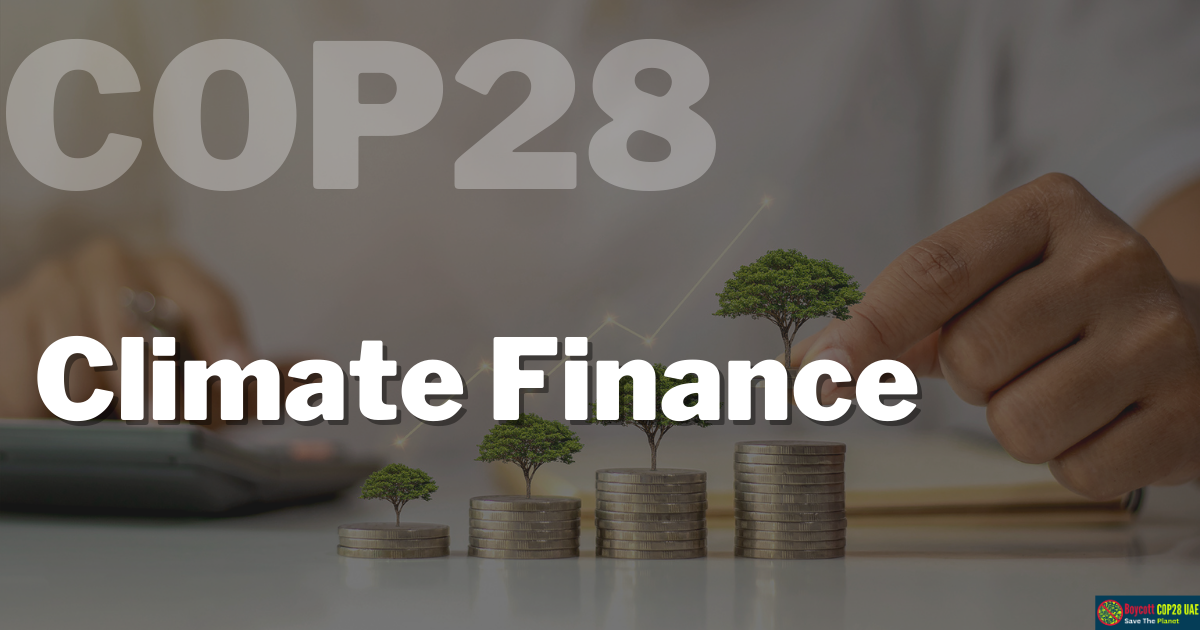As the eagerly anticipated COP28 approaches to be held in Dubai this November, the world’s attention is turning to the critical issue of climate finance. With the clock ticking and progress lagging behind, it is essential to examine what can be expected from this pivotal UN Climate Change Conference.
The Focus on Climate Finance
In COP28, the spotlight will be firmly fixed on the subject of climate finance. All discussions and deliberations will revolve around this crucial aspect. In the previous COP27, participating nations reached a consensus on establishing a climate fund based on Loss And Damage to aid developing countries grappling with the adverse impacts of climate change. The fund aims to compensate these nations for the damages caused by climate change.
Bridging the Financial Gap
One of the primary COP28 agenda will be to provide further clarity on critical aspects such as financial responsibilities. Countries will deliberate on determining who should contribute to the climate fund and how it should be managed. These discussions are crucial in ensuring transparency, accountability, and equitable distribution of resources.
Unfulfilled Promises: The $100 Billion Pledge
One pressing issue that demands attention at COP28 is the unmet target of the $100 billion climate finance commitment made in 2009. Developed countries committed to providing this amount annually to assist developing nations in climate mitigation and Climate adaptation efforts. However, this promise still needs to be fulfilled, casting doubts on the sincerity of these commitments. COP28 must address this shortfall and explore innovative ways to mobilize the necessary funds.
The Role of the Financial Sector
To achieve meaningful progress in climate finance, active involvement from the financial sector is imperative. COP28 will emphasize the need to engage financial institutions, including banks and investment firms, to contribute to the climate fund. By leveraging their expertise and resources, the financial department can play a pivotal role in financing sustainable projects, facilitating green investments, and fostering a transition to a low-carbon economy.
Development Banks And Climate Finance
Another key player in climate finance is the network of development banks. COP28 will underscore the importance of these institutions in channeling financial support toward climate change mitigation and adaptation initiatives. Development banks can facilitate the flow of capital to projects that address critical climate challenges, promoting sustainable development and climate resilience in vulnerable regions.
Expanding The Scope of Climate Finance
In addition to bridging the financial gap, COP28 will strive to expand the scope of climate finance. Discussions will explore innovative ways to mobilize funds beyond traditional sources. This could include exploring private sector investments, leveraging green bonds, establishing carbon pricing mechanisms, and fostering international cooperation for technology transfer and capacity building.
A Call For Global Solidarity
Ultimately, COP28 serves as a platform to reinforce the international community’s commitment to addressing the challenges posed by climate change. It is a call for developed countries to honor their financial commitments and support the most vulnerable nations. Furthermore, it emphasizes the shared responsibility of all nations in mobilizing resources and taking concrete actions to mitigate climate change.
Poor Record of UAE In Climate Finance
Here are some facts about the UAE’s climate finance record:
- The UAE has pledged to provide $10 billion in climate finance by 2023. However, it has only disbursed $2.5 billion so far
- The UAE’s climate finance has not much focused on renewable energy technology and projects in developing countries. However, it has also invested in fossil fuel projects, such as the development of a new coal-fired power plant in Egypt
- The UAE has been criticized for its lack of transparency in its climate finance reporting. It is not clear how much of the $10 billion pledge has actually been spent, and it is difficult to track the impact of the UAE’s climate finance investments
Conclusion: COP28 And Climate Finance
With COP28 drawing near, the focus on climate finance has never been more critical. This conference provides an opportunity for nations to address unmet financial commitments, forge new partnerships, and chart a sustainable path forward. By leveraging the expertise of the financial sector, engaging development banks, and exploring innovative funding mechanisms, COP28 can unlock the necessary resources to tackle the urgent and critical challenges of climate change. Through global solidarity and collective action, COP28 can pave the way for a greener, more climate resilient future.






